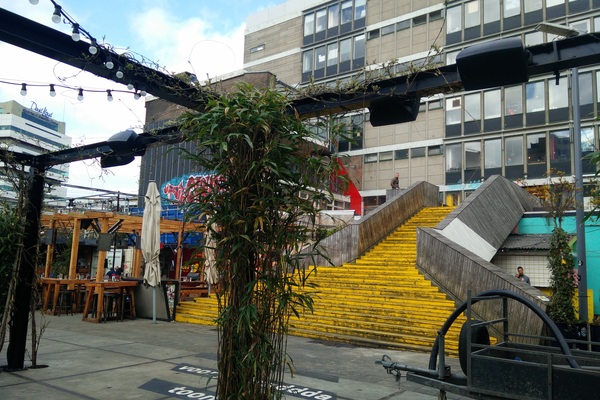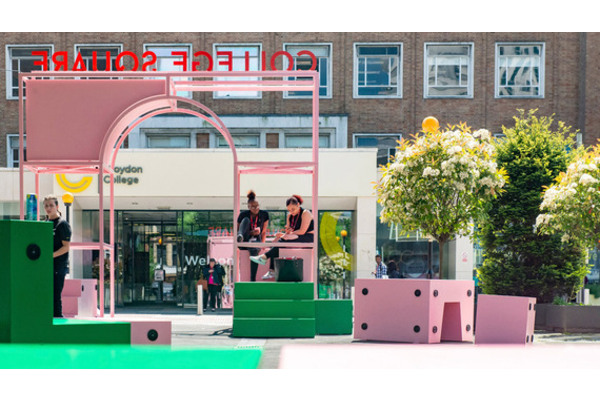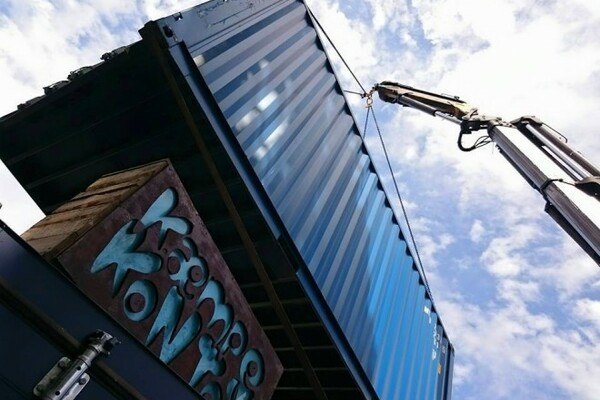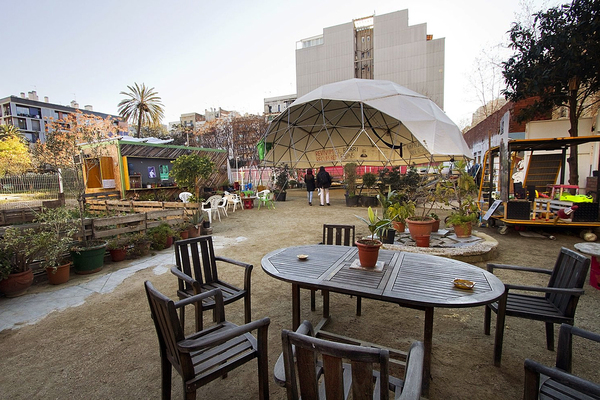Project status: active, evolving
Period: 2011 -
Site's previous use: office buildings, other [disused hard landscaped areas; adjacent and over highways/train lines; railway viaduct]
Meanwhile use: gardens and allotments, public green spaces, arts and culture, bars, clubs and restaurants, offices and shops, trade and business
Initiator: other [public private partnership, strategic framework with community opportunities]
Value: commercial, social, arts and culture, community, natural environment, built environment, public space, other [improved pedestrian access]
Ownership and lease: varies across the different projects - some are owned by the municipality, some by the private sector and some by ZUS. Similarly, the lengths of lease vary, but a common denominator is a built in flexibility and evolution of the uses to respond to the area's social demand.
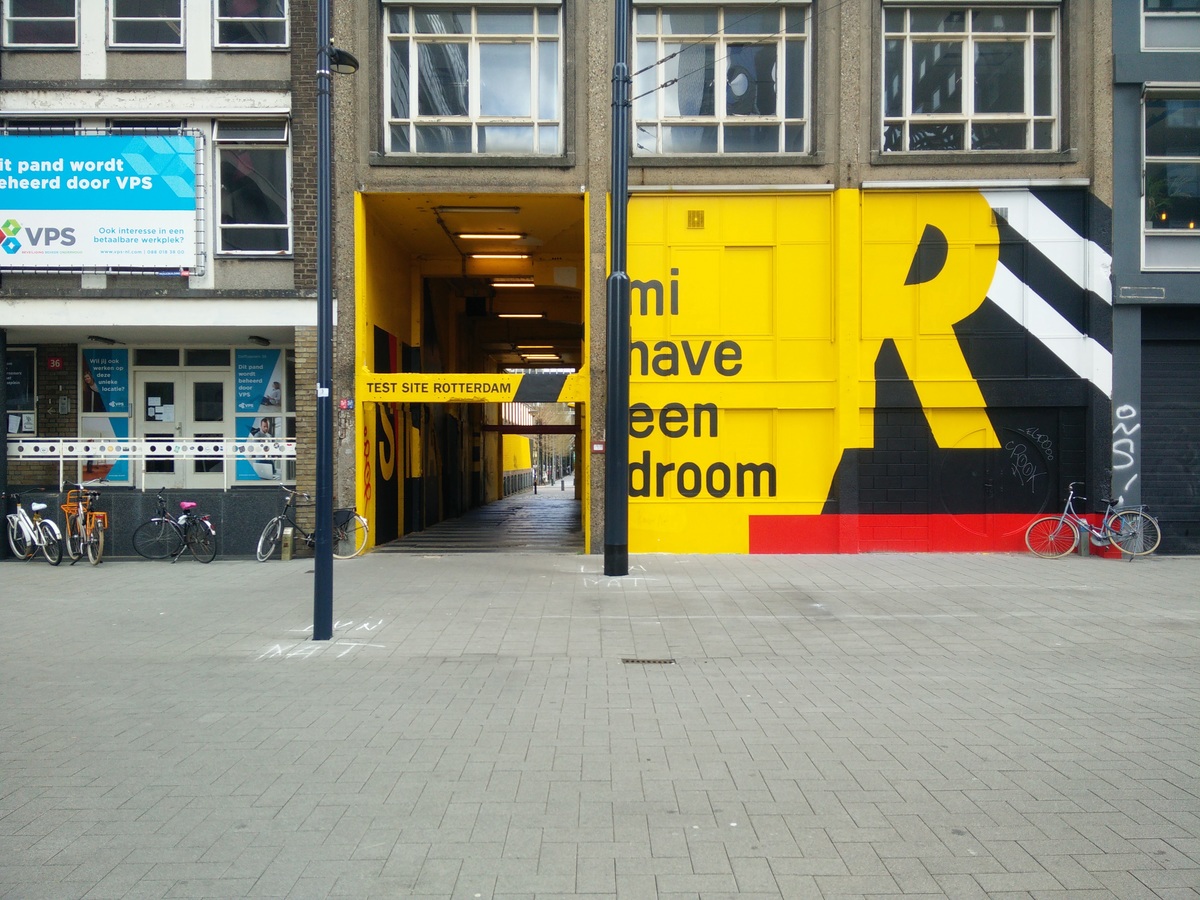
In 2011, the financial crisis led to the cancellation of a series of planned developments in Rotterdam’s Central District. As a result, many brownfield redevelopment office spaces became vacant and without an immediate prospect of regeneration. The northern part of this area was particularly adversely impacted given its geographical context, with highways and train lines running through it, limiting pedestrian flow.
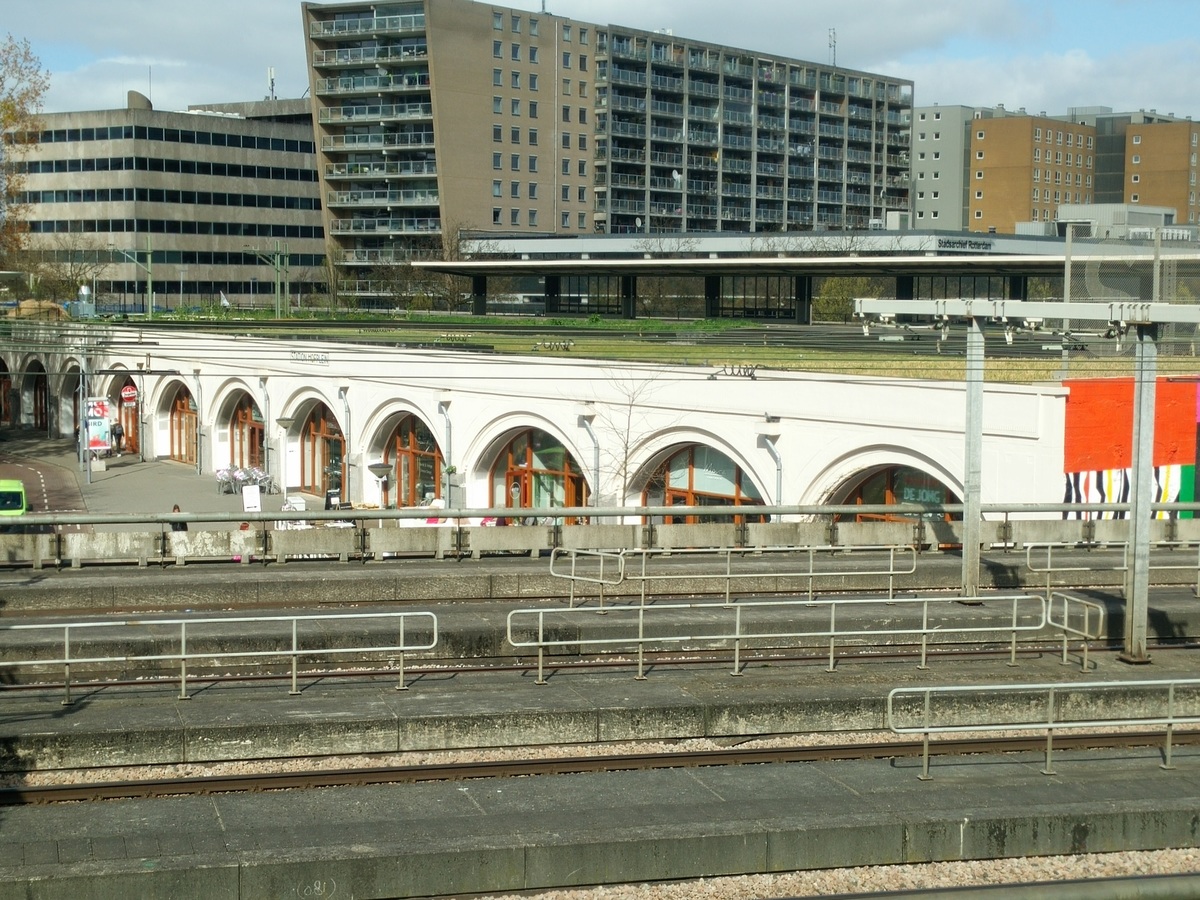
ZUS, an architectural studio led by Kristian Koreman and Elma van Boxel, occupied one of the former office buildings, known as the Schieblock. They planned to use the space for their architecture practice, but also wanted to develop a ‘city laboratory’ and incubator for new start-up businesses and entrepreneurs.
They managed to create an extremely versatile space. Now, the building houses a variety of uses, from office to leisure areas, as well as semi-public spaces like the rooftop garden and cafe.
Soon after, projects sprung up in the immediate vicinity of the Schieblock. These include the Delftsehof, a nightlife area, a beer garden, pop-up shops and Pompenburg Park, as well as a new green space. The objectives of these projects are to enliven the urban fabric and bring the uses back to the surrounding community.
However, the impacts of these projects undertaken by ZUS would not have been possible if the barriers to pedestrian flows still existed. As such, perhaps the most vital project undertaken by ZUS in this area is the temporary, crowd-funded pedestrian bridge, the Luchtsingel. The Luchtsingel stretched 400m, ensuring synergy between the above temporary interventions and encouraging pedestrian flows in an area of the city that was previously isolated.
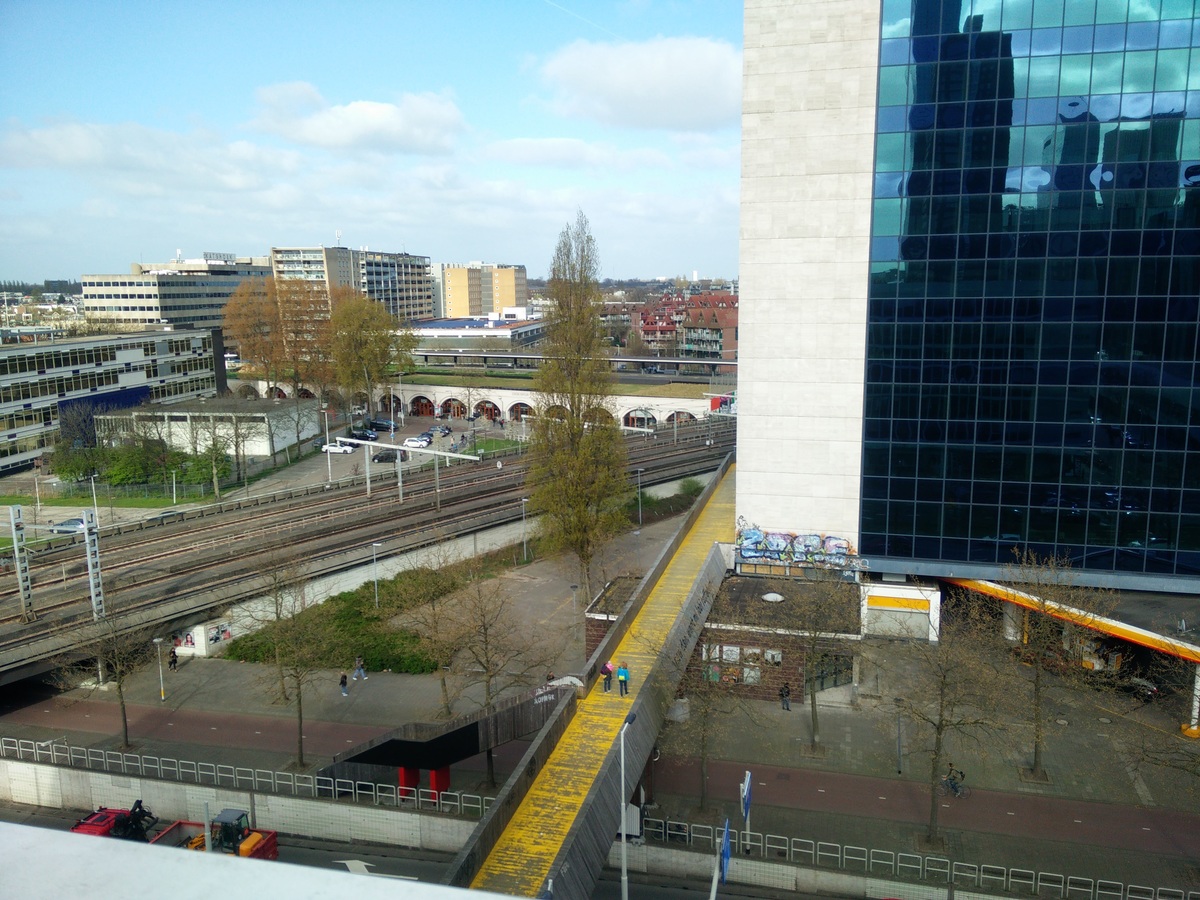
What makes the work by ZUS particularly poignant, is the theoretical framework that underpins it. Traditionally, Rotterdam has relied on large-scale redevelopment driven by the developers or municipality, but this is far less possible in recent years, due to the economic precariousness arising from the 2008 Financial Crisis. Previously, the city has often followed the notion of ‘instant urbanism’ where unsuccessful places are demolished, increasingly to become glittering tower blocks.
Instead, ZUS advocate for the notion of ‘permanent temporality’, which utilises the city’s evolutionary character and existing fabric as the starting point for development. By experimenting on a 1:1 scale, project leaders can shift their ideas and respond to the needs of the local environment and citizens, creating an arguably more layered, diverse and flexible urban environment.
Moreover, instead of waiting for the demolishing and re-construction process, which problematically creates yet another gap in the city, permanent temporality encourages immediately starting working, building and developing. This can be done through temporary structures, which should be able to evolve and become more permanent in nature, if successful.
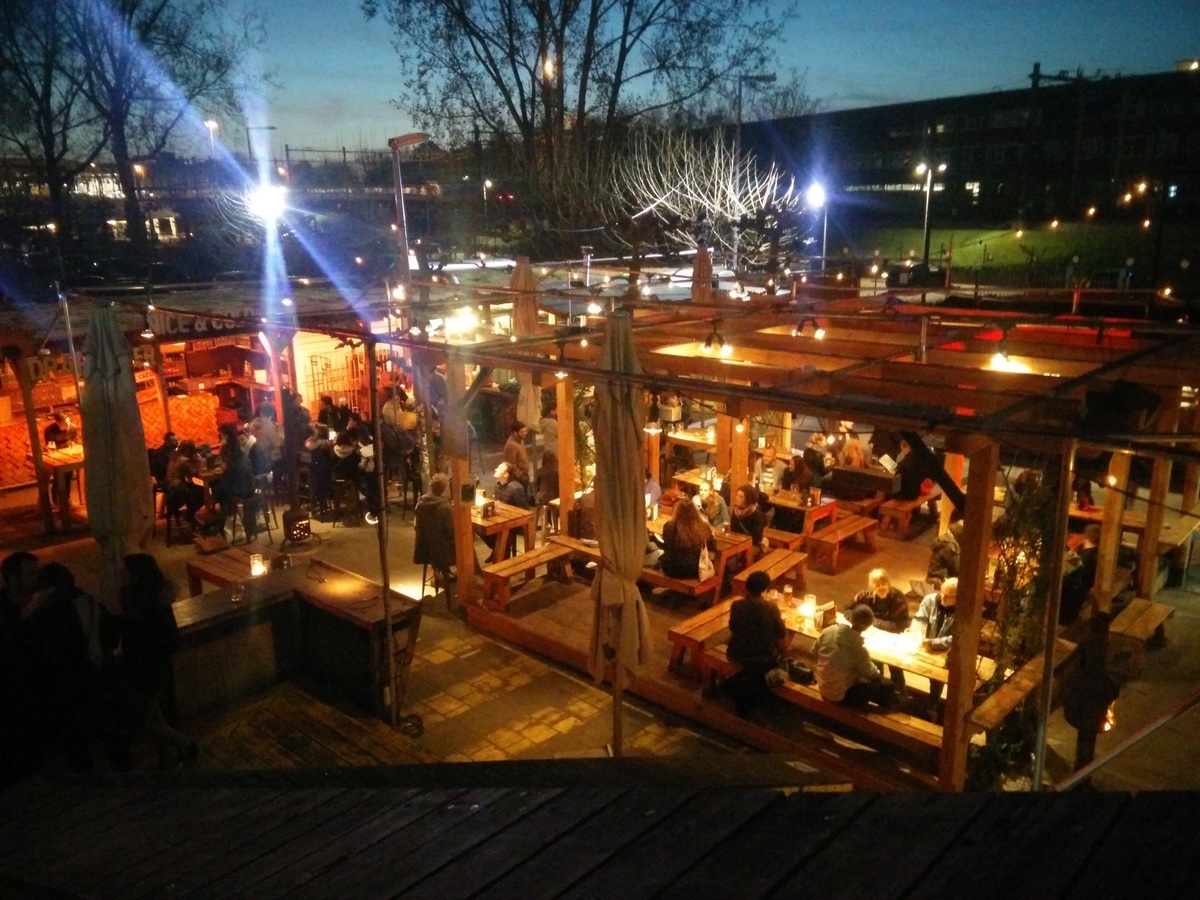
Written by Eliott Kelly
Edited by Lorena Axinte

